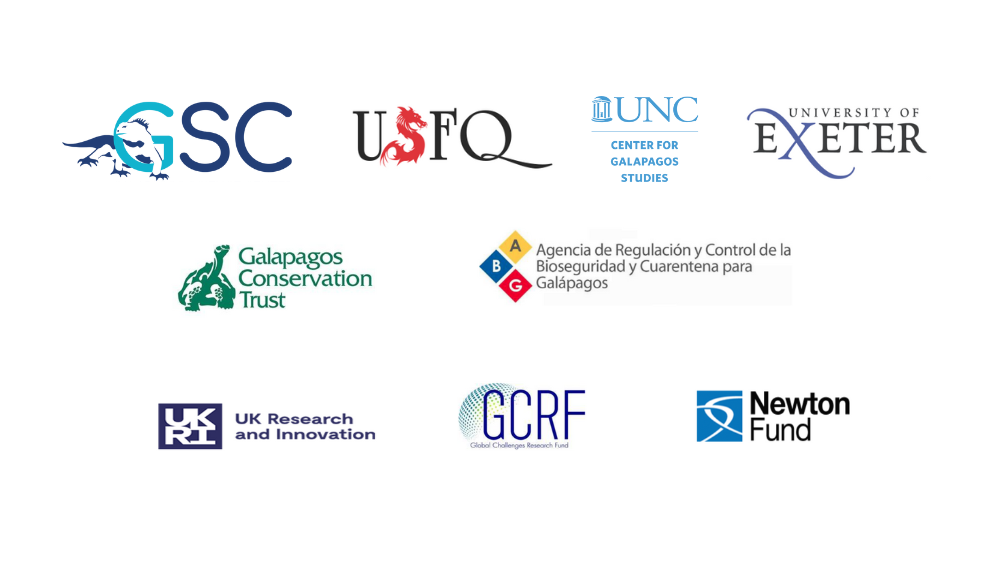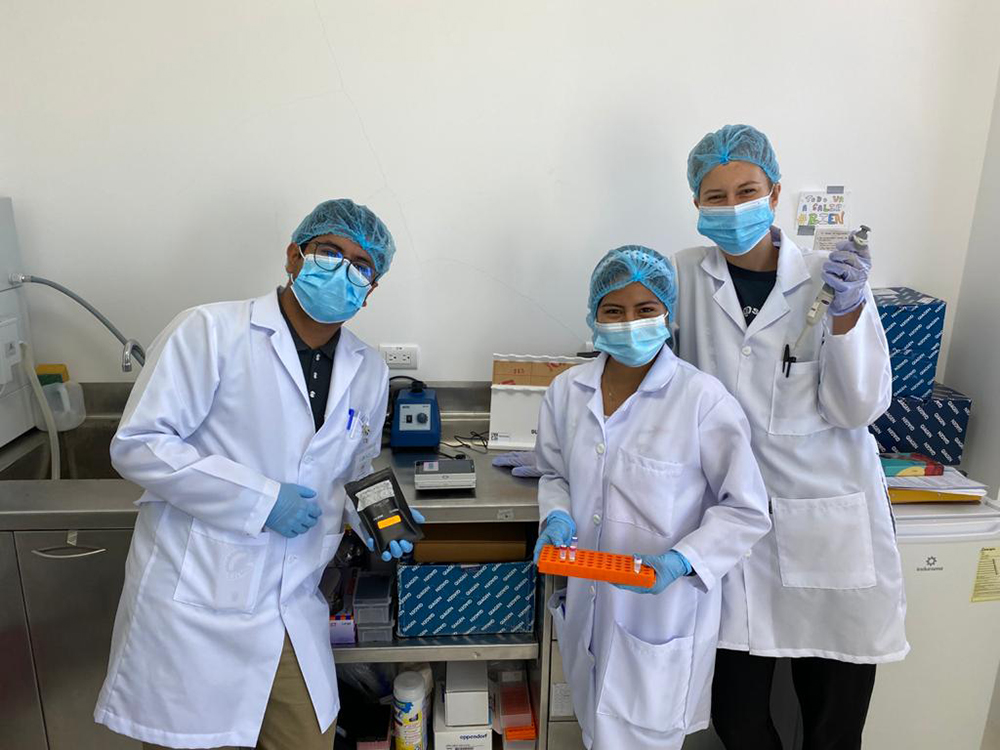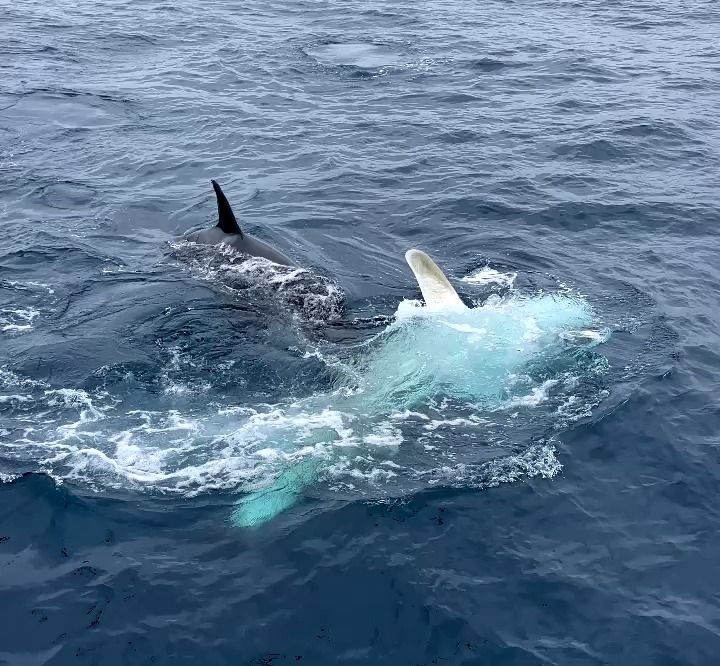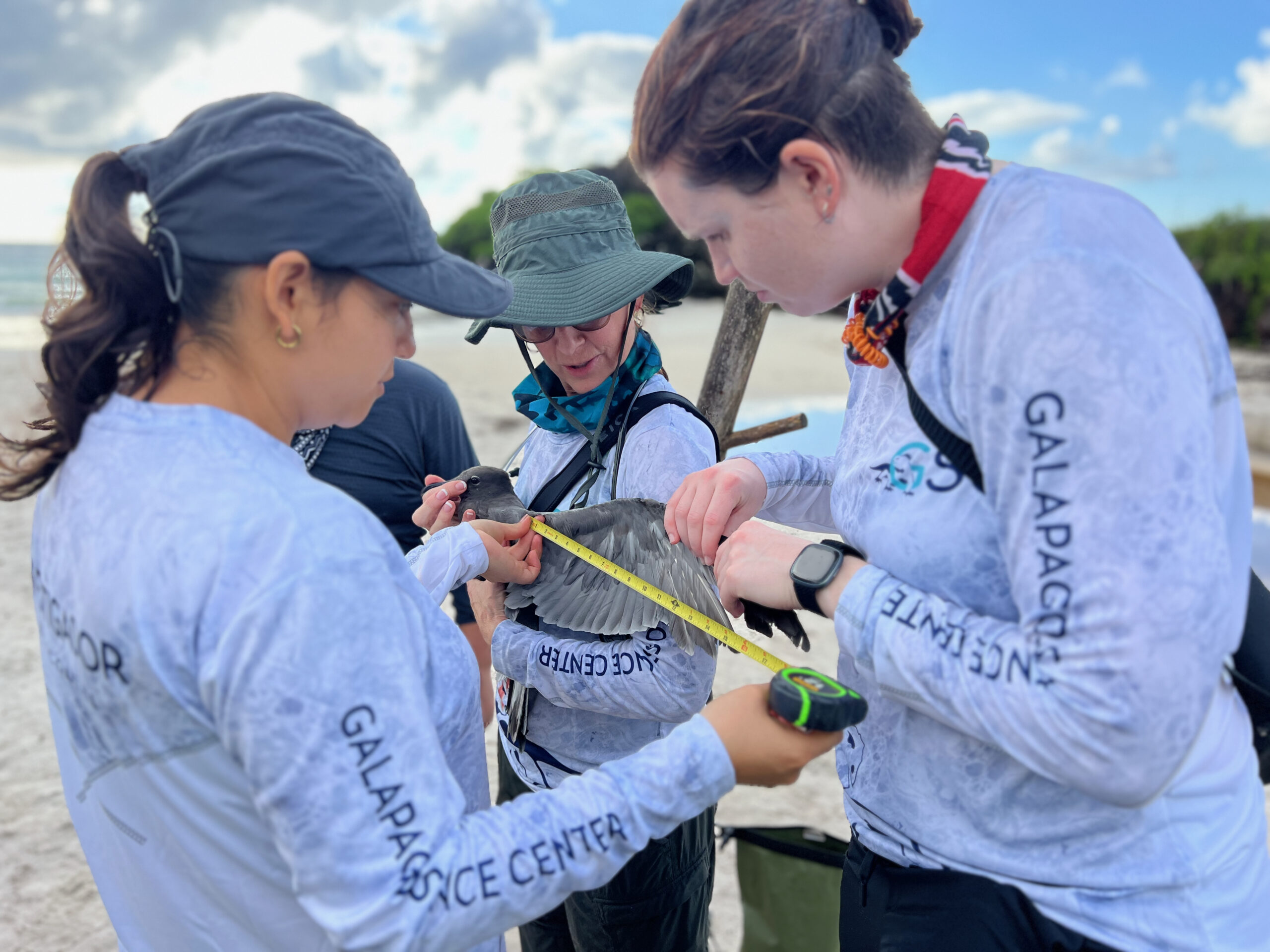Authors: Victoria Castro and Karina Vivanco
Edition: Kelly Weaver
The Galapagos Genetic Code (Barcode) project was created through collaboration between the Galapagos Science Center (GSC), the Universidad San Francisco de Quito (USFQ), the University of Exeter in the UK, the Agency for Regulation and Control of Biosafety and Quarantine for Galapagos (ABG), and the Galapagos Conservation Trust (GCT). This project arose in response to the economic impact caused by the COVID-19 pandemic on the Galapagos Islands and employed 79 people linked to tourism who had lost their income. Additionally, recognizing that there is limited knowledge about all species that make up the biodiversity of the Galapagos, this project is important both for researchers seeking to learn more about ecosystem health and preservation, and for the local community seeking to conserve their territory. Project funding was made possible thanks to the support of the Research and Innovation Fund and the Newton Fund, both belonging to the Global Challenges Research Fund of the UK Government.
The Galapagos Barcode project aims to catalog the biodiversity of the Galapagos Islands using non-invasive sampling techniques, such as “Environmental DNA (eDNA)” with a focus on marine-coastal ecosystems, and laboratory techniques such as “Metabarcoding” that are capable of generating large amounts of information. This has been done in order to build a more equitable, sustainable, and resilient future in Galapagos, improving knowledge about natural biodiversity and promoting community participation.
The project consisted of several stages, including participant selection, training, equipment acquisition, data collection, information processing, and analysis of results. “Often, scientists are thought of as one group of people and locals as another group of people, who really have nothing in common. During the pandemic, this initiative found a point where community and science could come together and work together. Participants were also able to learn about science, and what different techniques are used, from species recognition to the use of technology in genetics labs,” said Andy Russell, Professor of Animal Behavior at the University of Exeter in the UK.
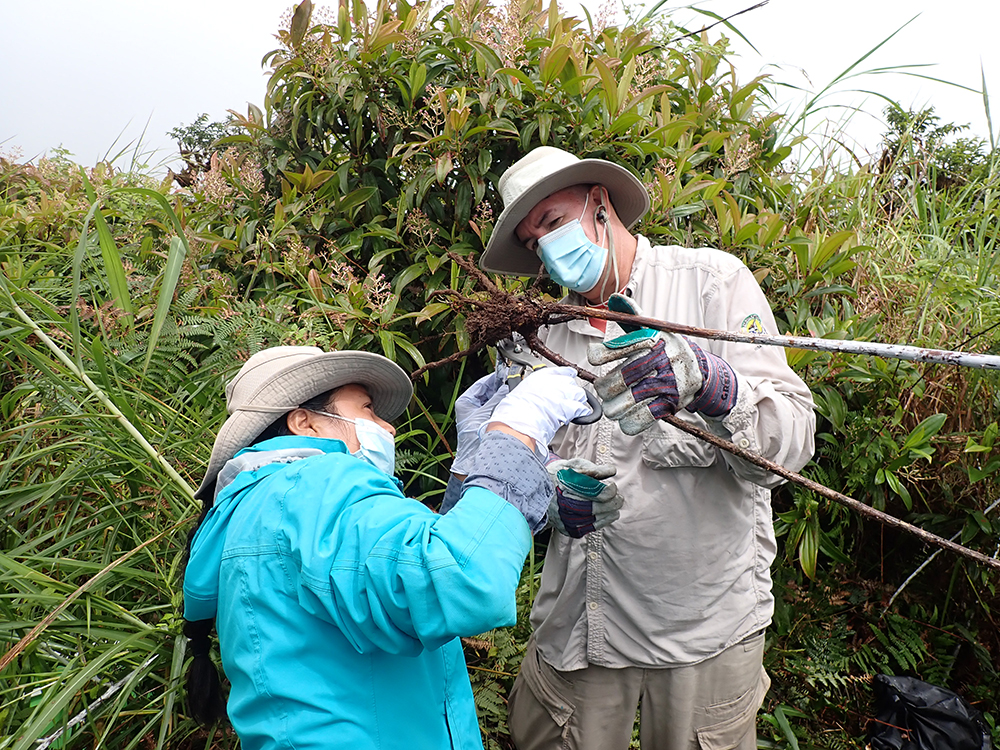
The process of selecting and training personnel for the Galapagos Barcode project involved selecting 79 people from among 446 applicants. The training was conducted virtually by professors from USFQ in Ecuador, the Charles Darwin Foundation and international researchers from the University of Exeter in the UK, the University of California at Berkeley, and the Monterey Bay Aquarium Research Institute.
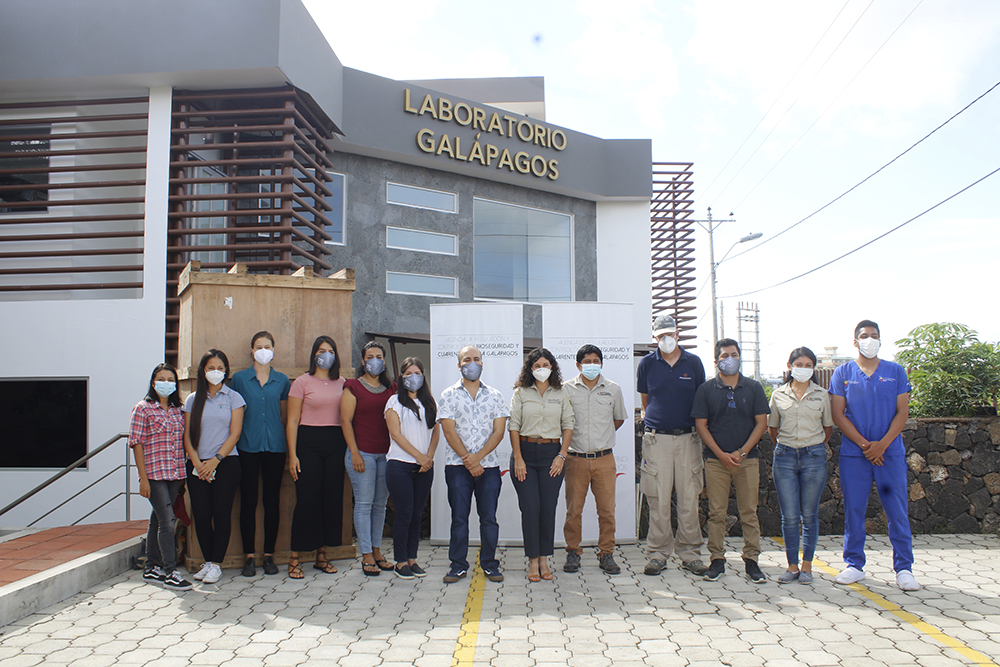
From September 2020 to October 2022, the Galapagos Barcode project carried out 28 field trips in the Galapagos Marine Reserve, collecting 1,896 botanical, water, soil, and endemic and invasive species DNA samples, and sequencing 466 assays.
To carry out the project, three laboratories were equipped on three islands: the Galapagos Science Center on San Cristóbal Island, ABG facilities on Santa Cruz Island, and the Municipal GAD facilities on Isabela Island. Each laboratory had state-of-the-art sequencing technology for the analysis of genetic barcodes and the collection and research of species DNA.
Among the preliminary results, it was observed that the soil microbiomes of Isabela, Santa Cruz, and San Cristóbal islands are different from each other, as well as along the altitudinal gradient. Additionally, it was observed that the environmental DNA methodology is capable of detecting at least twice as many species as conventional monitoring mechanisms. Therefore, standardization of this methodology will be sought to apply in the monitoring of marine coastal zones. The results analysis is expected to be completed by June 2023.
Learn more about the Galapagos Genetic Barcode on the project’s website: https://barcodegalapagos.com/
Project leaders.
Carolina Proaño L., MSc, Project Manager GSC Quito, and Diego Ortiz, MSc, Project Manager GSC San Cristóbal are the managers of the Galapagos Genetic Code (Barcode) project, who worked with Dr. Jaime Chaves, Dr. Diana Pazmiño, and Dr. Carlos F. Mena, researchers at GSC and professors at USFQ; Dr. Camille Bonneaud, Dr. Andy Russell, and Dr. Tomas Chaigneau, professors at the University of Exeter.
